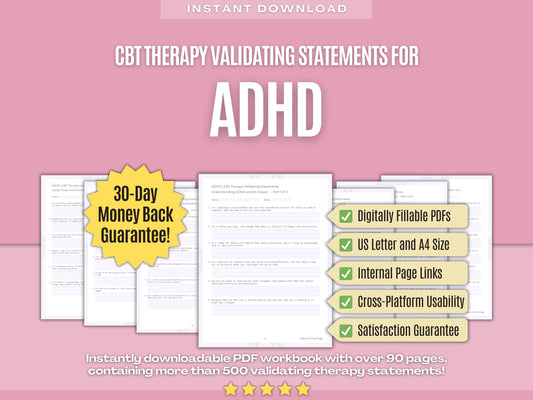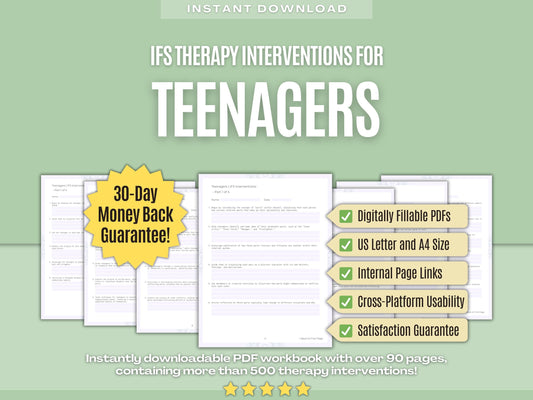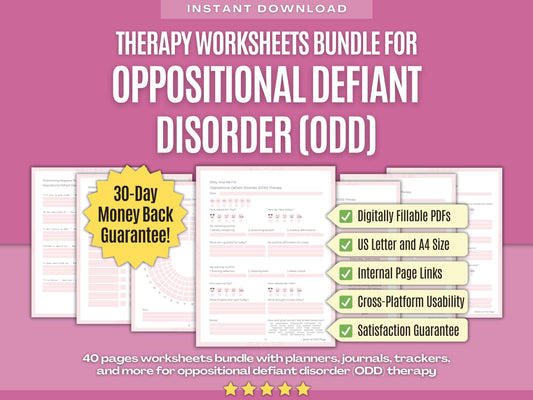Elevate Your Therapy and Guide Your Clients to Inner Healing with Our Loneliness Therapy Session Questions! ✨
1. Beginning Our Work Together
- How have you been since our last session? Have there been any changes or developments regarding your feelings of loneliness?
- Have you been able to implement any coping strategies or techniques we discussed in our previous sessions?
- Can you describe any moments or situations where you felt a sense of connection or belonging recently?
- How have your relationships with others evolved or shifted since our last session?
- Have you been practicing self-compassion and self-care as part of our therapy work?
- How have you been managing any social anxiety or fears related to reaching out to others?
- Are there any lingering doubts or uncertainties you have about our therapy process or your ability to overcome loneliness?
- Can you share any experiences or interactions that have challenged your beliefs about loneliness or connection?
- Have you been able to set any personal goals or milestones related to reducing your feelings of loneliness?
- How have you been incorporating the concepts and skills we've discussed in therapy into your daily life?
- Can you describe any moments of self-discovery or self-reflection you've had during our therapy sessions?
Need more? Find all 500+ Therapy Session Questions for Loneliness Therapy in our Digital Workbook!
2. Understanding Loneliness
- Can you describe in detail what loneliness feels like for you? What sensations or emotions come up when you're feeling lonely?
- Can you trace back to when you first started experiencing feelings of loneliness? What were the circumstances surrounding those experiences?
- Are there any patterns in your thoughts or behaviors that seem to perpetuate or exacerbate your feelings of loneliness?
- Have you explored the connection between your past experiences and your current feelings of loneliness? How do you think these experiences have influenced your relationship with loneliness?
- How do you perceive yourself in relation to others when you're feeling lonely? Do you tend to withdraw or isolate yourself, or do you actively seek connection?
- Can you describe any significant relationships in your life and how they impact your feelings of loneliness?
- Have you ever explored the concept of attachment theory and its potential relevance to your experience of loneliness?
- Are there any activities or hobbies that bring you a sense of fulfillment or connection when you're feeling lonely?
- Have you noticed any changes in your loneliness levels over time, or are there certain periods in your life when loneliness feels more intense?
- How do you think technology and social media influence your experience of loneliness? Do they provide a sense of connection or exacerbate feelings of isolation?
- Can you explore any fears or anxieties you have about reaching out for help or support when you're feeling lonely?
Need more? Find all 500+ Therapy Session Questions for Loneliness Therapy in our Digital Workbook!
3. Mindfulness for Connection
- Can you describe your current understanding of mindfulness and how you think it might be applied to your experience of loneliness?
- How do you typically respond to difficult emotions like loneliness when they arise? Are you open to exploring new ways of approaching these feelings through mindfulness?
- Are you willing to commit to incorporating mindfulness exercises into your routine between our therapy sessions?
- How do you think cultivating mindfulness might impact your ability to connect with yourself and others on a deeper level?
- Can you reflect on any past experiences where you felt disconnected from the present moment? What thoughts or emotions were present during those moments?
- Are you open to exploring mindfulness-based interventions as a way to enhance your overall well-being and sense of connection?
- Have you noticed any patterns in your thought processes or behaviors that detract from your ability to be present in the moment?
- How do you typically respond to moments of discomfort or distress, such as when you're feeling lonely? Are there any habitual reactions you'd like to change?
- Are you willing to approach mindfulness practice with an open mind, recognizing that it may take time and patience to see results?
- How do you feel about the idea of using mindfulness as a tool for deepening your understanding of loneliness and fostering greater connection?
- How do you currently nurture and maintain your sense of connection with others? Are there any mindfulness practices that could enhance these connections?
Need more? Find all 500+ Therapy Session Questions for Loneliness Therapy in our Digital Workbook!
4. Dialectical Behavior Therapy (DBT) for Emotional Understanding
- How would you describe your current emotional state when you're feeling lonely?
- What thoughts typically run through your mind when you're experiencing loneliness?
- How do you typically cope with feelings of loneliness in the moment?
- How do you perceive loneliness impacting your relationships and interactions with others?
- Can you identify any underlying beliefs or assumptions you hold about yourself in relation to loneliness?
- Have you explored different ways of connecting with others that you haven't yet tried?
- How do you feel about the idea of being alone versus being lonely? Is there a distinction for you?
- Are there any activities or hobbies that bring you a sense of connection or fulfillment when you're feeling lonely?
- Have you considered seeking professional support or joining support groups to address your feelings of loneliness?
- How do you define meaningful connection, and what efforts do you make to cultivate it in your life?
- How do you respond to feelings of loneliness when they arise? Do you tend to avoid them or confront them directly?
Need more? Find all 500+ Therapy Session Questions for Loneliness Therapy in our Digital Workbook!
5. Interpersonal Therapy (IPT) for Enhancing Relationships
- How would you describe the quality of your current relationships, and do you feel they adequately meet your need for connection?
- What types of interactions or activities do you find most fulfilling within your relationships?
- How do you typically express your needs and desires within your relationships, and how are they received by others?
- Can you identify any past experiences or relationships that have influenced your current approach to forming connections?
- How do you perceive the balance between giving and receiving support within your relationships?
- Can you recall any instances where you felt misunderstood or disconnected in a social or interpersonal setting?
- Have you explored different strategies for initiating or deepening connections with others?
- How do you handle conflicts or disagreements within your relationships, and are there any patterns in how they're resolved?
- What role does vulnerability play in your ability to form meaningful connections with others?
- Are there any changes or adjustments you would like to make in your social or interpersonal behavior to enhance your relationships?
- Have you explored the possibility of expanding your social network or seeking out new social opportunities?
Need more? Find all 500+ Therapy Session Questions for Loneliness Therapy in our Digital Workbook!
6. Emotion-Focused Therapy (EFT) for Emotional Loneliness
- Can you describe what emotional loneliness feels like for you?
- Have you noticed any patterns or triggers that exacerbate your feelings of emotional loneliness?
- Can you recall a recent experience where you felt emotionally lonely? What was that like for you?
- Are there specific situations or environments where you feel more prone to experiencing emotional loneliness?
- What do you think might be underlying the root causes of your emotional loneliness?
- Are there any past experiences or relationships that still impact your feelings of emotional loneliness today?
- Can you identify any beliefs or self-perceptions that contribute to your experience of emotional loneliness?
- How do you typically respond when you notice yourself feeling emotionally lonely?
- Are there any barriers or challenges that prevent you from reaching out for support when you're feeling emotionally lonely?
- Are there any aspects of yourself or your life that you feel grateful for, even when experiencing emotional loneliness?
- Can you recall a time when you felt connected or less lonely emotionally? What contributed to that experience?
Need more? Find all 500+ Therapy Session Questions for Loneliness Therapy in our Digital Workbook!
7. Delving into Relationship Dynamics
- Can you describe the dynamics of your relationships with others, including friends, family, and romantic partners?
- Are there any specific relationships that you feel contribute positively or negatively to your feelings of loneliness?
- What are some common communication styles or strategies that you use in your relationships, and how do they influence your feelings of connection or isolation?
- Are there any boundaries or expectations that you've established in your relationships, and if so, how do they affect your sense of belonging and connection?
- How do you think your past experiences with relationships, both positive and negative, have shaped your current perceptions and behaviors?
- What role do trust and vulnerability play in your relationships, and how comfortable are you with being open and authentic with others?
- Are there any cultural or societal norms surrounding relationships that influence how you approach and maintain connections with others?
- How do you respond to feelings of rejection or abandonment within your relationships?
- What are some qualities or traits that you value most in your relationships, and do you feel you're able to cultivate those in your current connections?
- Can you differentiate between healthy and unhealthy relationship dynamics, and do you feel you're able to establish boundaries when necessary?
- Are there any role models or examples of healthy relationships that you look up to, and what lessons can you draw from them?
Need more? Find all 500+ Therapy Session Questions for Loneliness Therapy in our Digital Workbook!
8. Connecting through Music Therapy
- How do you currently engage with music in your life, whether through listening, playing an instrument, or singing?
- What emotions or memories does music evoke for you, and how do you think these relate to your feelings of connection or disconnection with others?
- Can you describe any apprehensions or uncertainties you may have about incorporating music into your therapeutic process?
- Are there any genres, artists, or specific songs that you feel particularly drawn to or resonant with during times of loneliness?
- Can you reflect on any past experiences with music that have brought you a sense of connection or belonging?
- Are there any instruments or musical techniques that you feel curious about exploring in the context of therapy?
- Can you explore the idea of using music as a means of communication and connection with others, both within and outside of therapy sessions?
- Can you identify any barriers or challenges that may arise as you begin to explore your relationship with music in the context of therapy?
- Can you recall any specific lyrics or melodies that resonate with your feelings of loneliness, and how might these be explored further in therapy?
- Can you explore the idea of using music as a means of connecting with your inner self and fostering a sense of inner peace and acceptance?
- Are there any memories or experiences from your past that you feel inspired to explore through music therapy?
Need more? Find all 500+ Therapy Session Questions for Loneliness Therapy in our Digital Workbook!
9. Reflecting on Progress
- Looking back on our sessions together, how would you describe the progress you've made in understanding and addressing your feelings of loneliness?
- How have your perceptions or attitudes towards loneliness evolved since we first started therapy?
- Can you reflect on any changes you've noticed in your relationships or social interactions as a result of our work together?
- Have there been any challenges or setbacks you've encountered along the way, and how have you navigated them?
- How have you been integrating the insights and skills gained in therapy into your everyday life?
- Can you describe any shifts in your self-perception or self-esteem that you've noticed throughout the course of therapy?
- How do you think your relationships with others have been impacted by the changes you've experienced in therapy?
- What role has self-reflection and self-awareness played in your progress towards overcoming loneliness?
- Can you describe any changes in your ability to cope with difficult emotions or situations since starting therapy?
- Can you explore any lingering challenges or areas of growth that you feel are important to address moving forward?
- Are there any relationships or connections in your life that you feel require further attention or nurturing?
Need more? Find all 500+ Therapy Session Questions for Loneliness Therapy in our Digital Workbook!
10. Moving Forward from Loneliness
- As you reflect on your journey in therapy, what are your thoughts and feelings about moving forward from loneliness?
- How do you envision your life being different now that you've begun to address and work through your feelings of loneliness?
- Can you describe any goals or aspirations you have for yourself in terms of fostering connection and fulfillment in your life?
- Can you reflect on any changes you've noticed in your beliefs or attitudes towards yourself and your capacity for connection?
- Are there any specific strategies or techniques you've found helpful in managing and coping with loneliness that you'd like to continue practicing?
- How do you envision balancing your desire for connection with your need for independence and self-care in the future?
- Can you identify any potential obstacles or challenges that may arise as you work towards building a more fulfilling social network?
- Can you explore any beliefs or narratives about yourself or relationships that may be hindering your progress towards moving forward from loneliness?
- Can you reflect on any values or principles that you'd like to guide your actions and decisions as you move forward?
- How can you leverage your strengths and resources to overcome any challenges that may arise as you transition away from loneliness?
- What boundaries or self-care practices do you feel are important to establish in order to maintain healthy relationships moving forward?
We hope that our therapy session questions for Loneliness therapy will help you to elevate your therapy practice and guide your clients to inner healing! Do you need more therapy session questions for Loneliness therapy? Find them all in our Digital Workbook! Or do you have any questions or suggestions for us? Please feel free to contact us at any time!


















